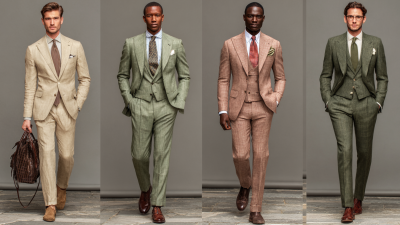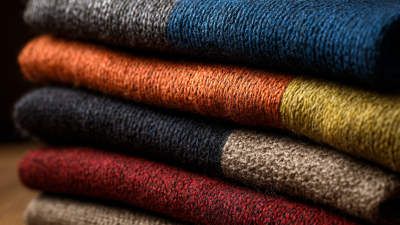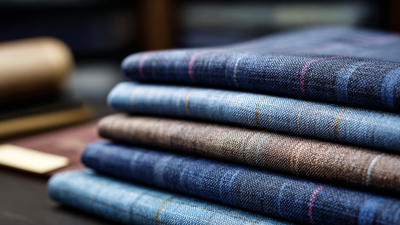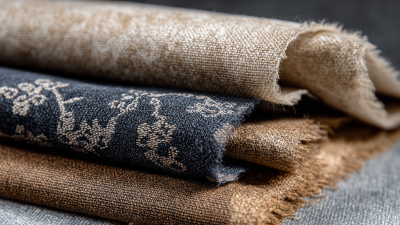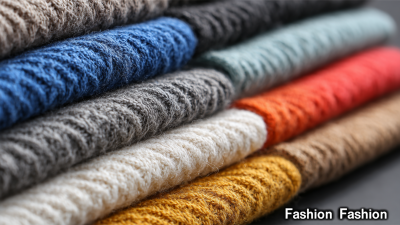In the ever-evolving world of fashion, the choice of fabric plays a pivotal role in defining the sophistication and style of tailored suits. According to a recent report from The Global Apparel Market, the demand for tailored clothing has increased by 12% over the last year, signaling a renewed interest in bespoke fashion. As consumers become more discerning, understanding the nuances of fashion suit fabric can set one apart in both personal style and professional settings.
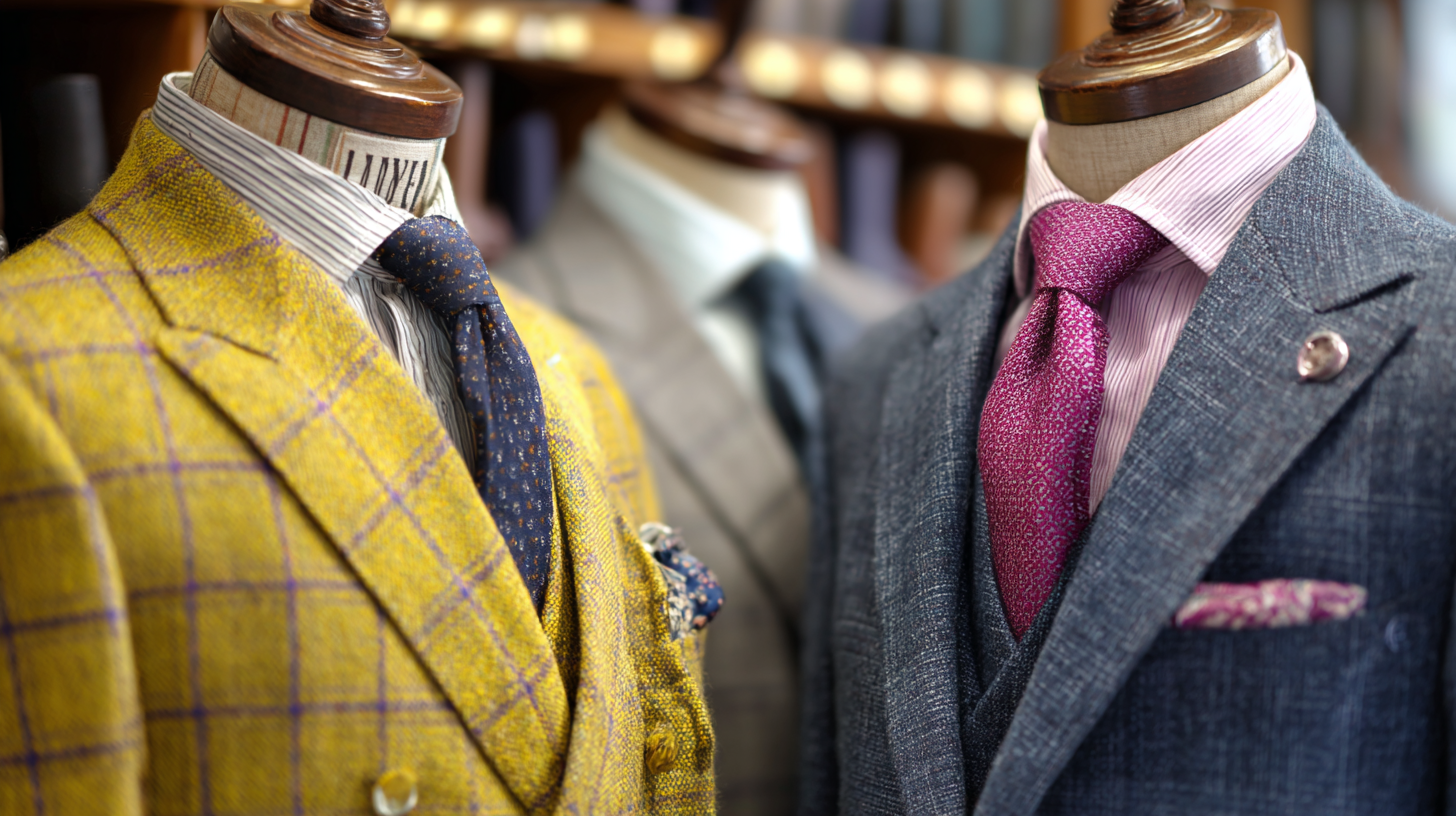
Selecting the right fabric not only enhances the aesthetic appeal of a suit but also impacts comfort and durability. Research indicates that wool remains a sought-after choice due to its breathability and natural elasticity, embodying the qualities that suit wearers crave. In addition, technologically advanced fabrics, such as mohair blends and linen, have gained traction for their innovative features and summer suitability. This informs us that the landscape of fashion suit fabric is not merely about tradition but also embraces modern advancements and sustainability, making it crucial for any fashion-forward individual to be well-versed in these vital elements.
Choosing the right fabric for your tailored suit is essential not only for aesthetics but also for comfort and durability. According to a 2022 report by the Textile Association, about 60% of consumers prioritize fabric quality when purchasing suits. This highlights the pivotal role that fabric plays in creating a polished look that also lasts. Different fabrics bring unique characteristics to your ensemble; for instance, wool is celebrated for its breathability and flexibility, making it ideal for a range of occasions, from formal events to business meetings.
Another compelling factor is the seasonal suitability of fabrics. Research from the Fashion Institute indicates that lightweight fabrics, like linen and cotton, are preferred by 70% of men during warmer months due to their cooling properties. In contrast, heavier fabrics such as flannel or tweed are favored in colder climates for their warmth and structure. Understanding these nuances can guide you in selecting the right fabric, ensuring your tailored suit not only fits well but also aligns with your lifestyle and the occasion at hand.
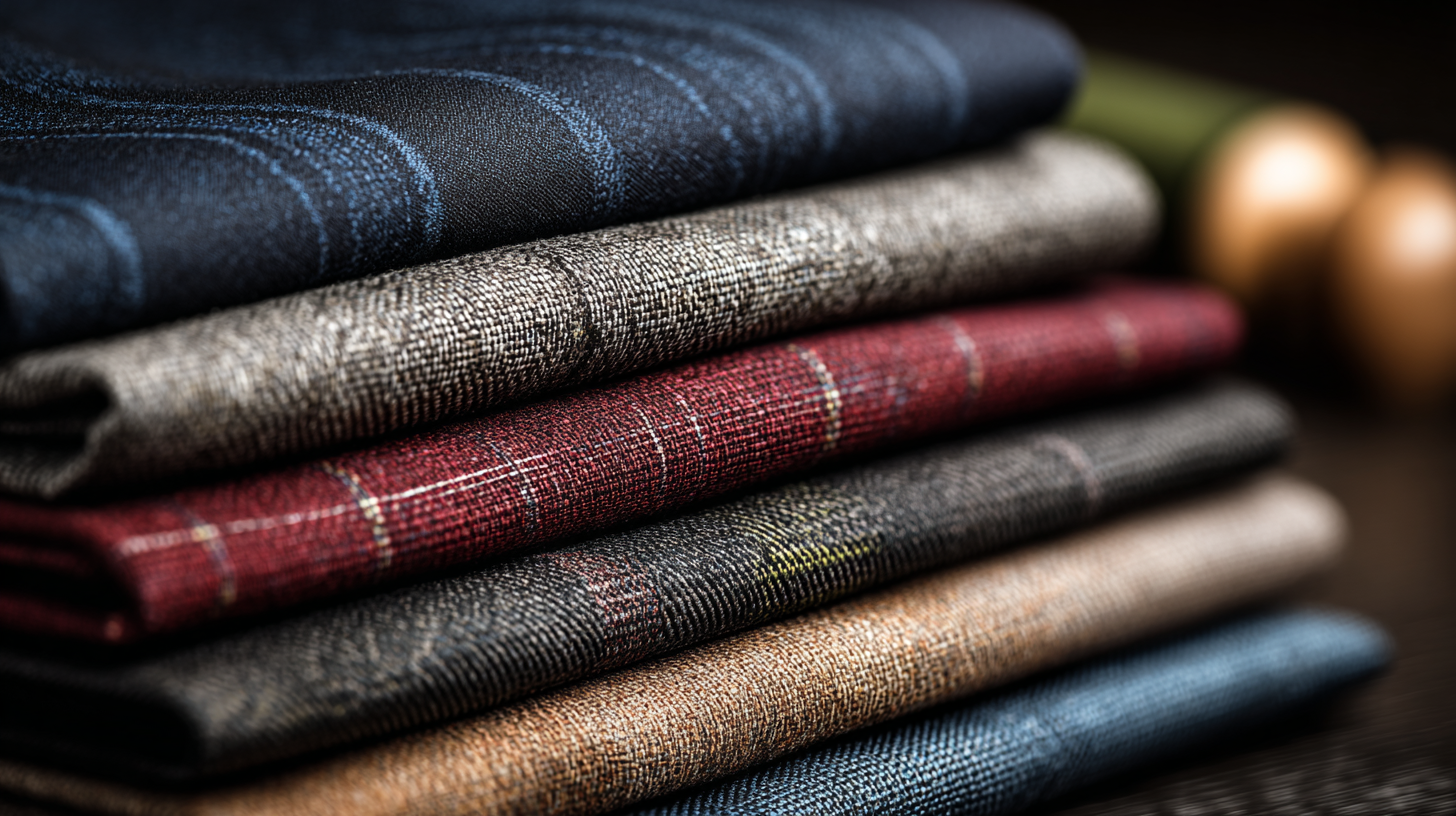
 When it comes to tailored looks, choosing the right fabric is paramount. Classic wool fabrics have long been the go-to choice for suiting due to their natural elegance and versatility. With a variety of wool types available—from fine Merino to heavier flannel—each offers unique benefits and aesthetic qualities. The breathable nature of wool keeps you comfortable in various climates, while its durability ensures that your tailored pieces can withstand the test of time, maintaining their shape and structure.
When it comes to tailored looks, choosing the right fabric is paramount. Classic wool fabrics have long been the go-to choice for suiting due to their natural elegance and versatility. With a variety of wool types available—from fine Merino to heavier flannel—each offers unique benefits and aesthetic qualities. The breathable nature of wool keeps you comfortable in various climates, while its durability ensures that your tailored pieces can withstand the test of time, maintaining their shape and structure.
Tip: When selecting wool, consider the weight of the fabric. Lighter weights are ideal for warmer weather and create sharper silhouettes, while heavier options bring warmth and a more relaxed, cozy vibe for winterwear.
Additionally, the texture and weave of the wool can greatly affect the overall visual appeal of your suit. A worsted wool, for instance, is characterized by its smooth surface and crisp finish, making it perfect for formal occasions. In contrast, tweed provides a more casual, rustic charm that works beautifully for business-casual attire.
Tip: Always test the fabric's hand feel—this will give you insight into how it will wear over time. Look for a balance between structure and softness to ensure your tailored look is both stylish and comfortable.
Cotton has long been a staple in the world of fashion, particularly for tailored suits. Its versatility allows it to adapt to various styles, making it a favored choice among designers and wearers alike. According to a recent report by Grand View Research, the global cotton market is expected to reach $2.7 billion by 2025, underscoring its continued significance in the textile industry. This fabric's inherent breathability and softness make it ideal for contemporary suiting, providing comfort without compromising on elegance.
In the realm of tailored looks, cotton blends have gained popularity, combining the natural benefits of cotton with performance fibers for enhanced durability and wrinkle resistance. A study by the Textile Research Journal highlighted that cotton-polyester blends have become a leading choice due to their cost-effectiveness and ease of care, appealing to today’s busy professionals. As fashion trends lean towards casual sophistication, cotton suits are emerging as a go-to option, allowing for a polished appearance that remains comfortable throughout the day. This underscores how cotton not only meets practical needs but also aligns with the evolving aesthetics of modern menswear and women's tailored fashion.
When it comes to summer suit styles, linen stands out as a quintessential choice for both comfort and aesthetics. Known for its lightweight and breathable qualities, linen fabric allows for excellent airflow, making it ideal for warm weather. As temperatures rise, the last thing you want is to feel constricted in a heavy suit; linen provides a relaxed yet polished look that keeps you feeling cool.
Moreover, linen naturally absorbs moisture, which further enhances its comfort during hot, humid days. This ability to wick away perspiration means you can maintain a more composed appearance without sacrificing style. The distinct texture and relaxed wrinkle of linen also add character to any tailored outfit, making it perfect for casual summer gatherings or more formal events alike. With its timeless appeal and practicality, linen remains a go-to fabric for anyone looking to elevate their summer wardrobe.
| Fabric | Characteristics | Best For | Season |
|---|---|---|---|
| Cotton | Soft, breathable, and durable | Casual and outdoor settings | Spring/Summer |
| Linen | Lightweight, quick-drying, and breathable | Summer suits and formal occasions | Summer |
| Wool | Warm, resilient, and versatile | Business and formal attire | Fall/Winter |
| Polyester | Durable, resistant to wrinkles, and affordable | Everyday wear and travel | Year-Round |
| Silk | Luxurious, lightweight, and smooth | Formal events and evening wear | Spring/Summer |
When it comes to tailored suits, choosing the right fabric is crucial, especially for the eco-conscious consumer. Many traditional suit fabrics can have a significant environmental impact, prompting a shift towards more sustainable options. Fabrics made from organic cotton, linen, and Tencel are gaining popularity as they require less water and pesticides, making them better for the planet. These materials not only reduce environmental harm but also provide comfort and breathability, essential features for tailored garments.
In addition to these natural fibers, innovative fabrics derived from recycled materials and even bio-based sources like fruits are changing the landscape of fashion. This evolution in fabric technology is pushing fashion towards sustainability, allowing consumers to make more responsible choices without compromising style. As awareness grows, many brands are committed to reducing their carbon footprint, ensuring that eco-friendly fashion is accessible and desirable. Adopting these sustainable fabrics can be a significant step in curating a wardrobe that is both stylish and kind to the Earth.
This chart showcases the sustainability scores of various eco-friendly fabrics commonly used for tailored suits. The scores reflect how environmentally friendly each fabric is, guiding eco-conscious fashion choices.
